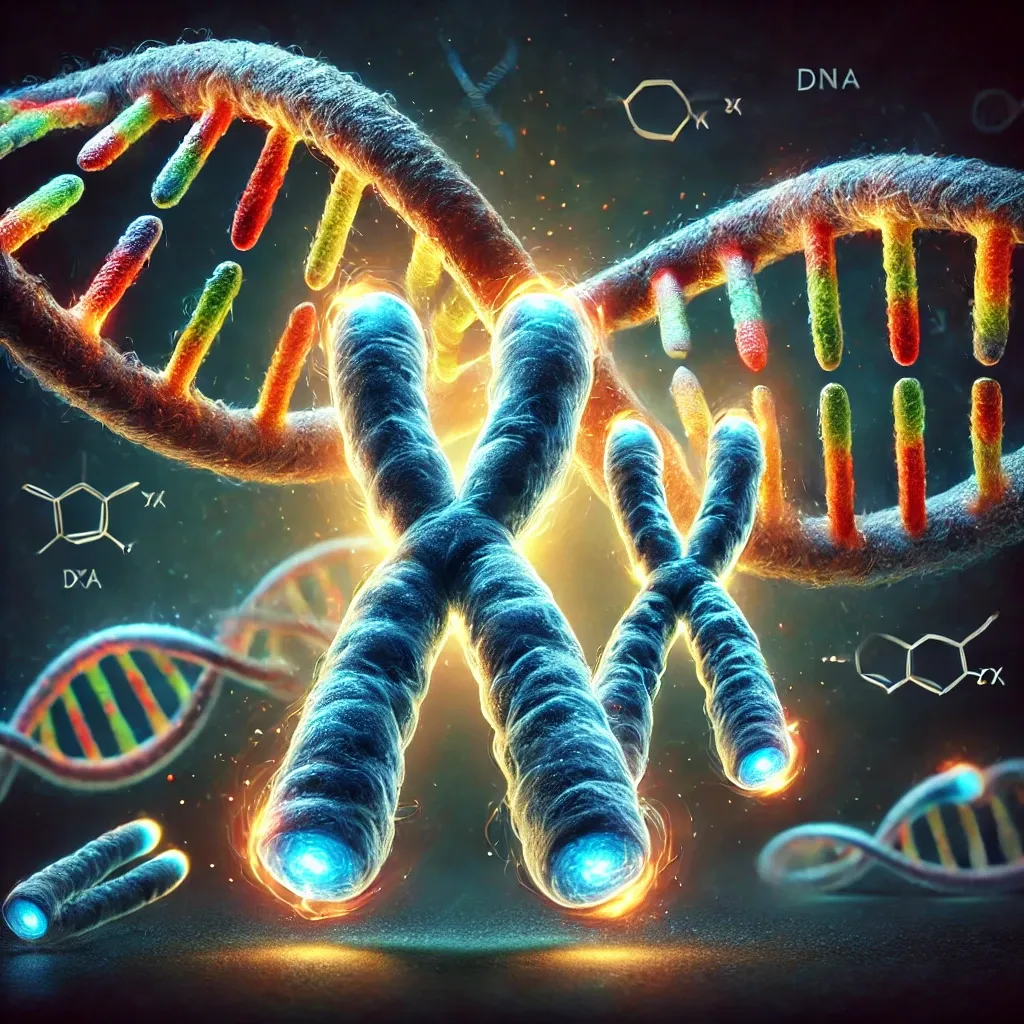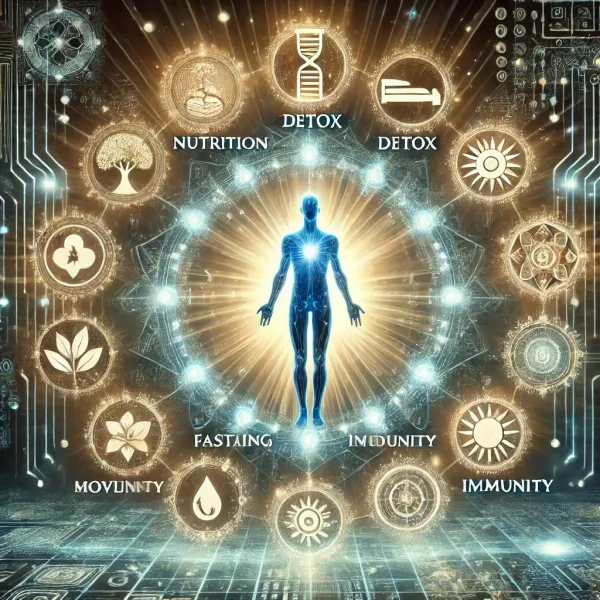Sugar Sabotage

How All Forms of Sugar are Driving Chronic Disease
When you think of sugar, what comes to mind? Maybe it’s table sugar—the sweet stuff you sprinkle into your coffee or bake into cookies. Or perhaps it’s blood sugar, the amount of glucose in the blood? But sugar is so much more than that.
It’s a sneaky saboteur, quietly fueling weight gain, inflammation, and even chronic diseases you might not expect. What’s worse? It’s hiding in almost everything you eat, from sauces to snack bars
Let’s dive into how sugar affects our bodies, why it’s so hard to avoid, and what we can do to take back control.
America’s Sugar Crisis
Let’s start with some jaw-dropping numbers. Did you know that the average American consumes approximately 102 pounds of sugar and 130.5 pounds of white flour each year? That's like eating your body weight in sugar and flour annually!
These substantial amounts of refined carbohydrates contribute to serious health issues. This isn’t just about gaining a few pounds. Consider these stats:
- 1 in 2 adults is pre-diabetic, and 90% don’t even know it.
- 93.2% of Americans are metabolically unhealthy.
- Sugar is linked to conditions like cognitive decline, depression, dementia, and even Alzheimer’s disease (sometimes called “Type 3 Diabetes”)
What makes it worse is that 74% of packaged foods contain added sugar. So even when you think you’re making healthy choices, sugar could still be undermining your efforts.
What Exactly Is Sugar?
Not all sugar is created equal. Let’s break it down:
Blood Sugar (Glucose)
Blood sugar refers to the concentration of glucose in the bloodstream. Glucose is essential—it’s the "energy of life." Every cell on the planet, from plants to animals to humans, utilizes glucose to generate energy. Plants produce glucose through photosynthesis, a process that converts carbon dioxide and water into glucose and oxygen using sunlight. Humans can produce it from fats and proteins through a process called gluconeogenesis
Table Sugar (aka Sucrose)
This is the sugar you know best: the one in your recipes or sprinkled into your morning coffee. Sucrose is made of two molecules: glucose and fructose.
- Glucose fuels your body.
- Fructose inflames it.
Fructose is the "sweet molecule" found naturally in fruits and honey and was once a lifesaver. It helped our ancestors fatten up for the winter when food was scarce. But today, when food is always available, fructose has become a health hazard. It's highly addictive and comparable to substances like heroin, cocaine, and alcohol, according to cDr. Robert Lustig. (Dr. Robert Lustig, 2021).
Unless it’s paired with fiber (as in whole fruits), fructose offers no real benefit. Instead, it’s a key player in weight gain, cravings, and inflammation and is pervasive in processed foods.

How Insulin Resistance Develops
Insulin resistance is the underlying driver of so many chronic diseases, and sugar is often the culprit. It doesn't happen overnight; it's more like a slow motion-crash caused by sugar consumption over time. Here’s how it happens:
- Flooding the System: You're eating 3 times per day the standard American diet, and glucose floods your bloodstream. Every day, 3 times per day, 365 days a year!
- Overworked Cells: Your cells are full of glucose and deny entry to more, leaving elevated glucose remaining in the blood stream. These cells are now resistant to accommodating more glucose and don't respond to insulin. Congratulations, you are now Insulin Resistant!
- Insulin Overdrive: To compensate, your pancreas produces even more insulin because it doesn't know that the insulin no longer works—your cells remain resistant.
- The Double Whammy: Now you have high insulin and high blood sugar circulating in your body. This sets the stage for fat storage, inflammation, and diseases like type 2 diabetes and non-alcoholic fatty liver disease (NAFLD)
The Real Villain: Fructose
If glucose is the body’s fuel, fructose is its troublemaker. Unlike glucose, which is used by every cell, fructose is processed almost entirely in the liver. In excess, it can wreak havoc and it’s hidden in everyday foods, even ones labeled "natural" or "healthy."
Here’s where fructose hides:
- Natural Sweeteners: Honey, agave nectar, maple syrup.
- Processed Sweeteners: High-fructose corn syrup, fruit juice concentrates, brown sugar, beet syrup, cane syrup, rice syrup, etc.
- Packaged Foods: Condiments, salad dressings, granola bars, flavored yogurts, breads, pastas, pasta sauces, packaged meats, canned goods—almost all prepackaged foods—you name it, it's likely in there.
Excessive fructose consumption has been linked to obesity, insulin resistance, and NAFLD, creating a domino effect of health problems.
Even foods marketed as "natural" or "healthy" can contain added fructose through ingredients like honey, agave nectar, and fruit juice concentrates. These additives contribute to total fructose consumption and may pose similar health risks when consumed in excess. Medical News Today
Sugar’s Impact on the Body and Brain
Sugar affects more than just your waistline. Let’s look at the bigger picture:
- Brain Health: High sugar intake leads to the formation of advanced glycation end products (AGEs), which damage neurons. This can result in memory problems, brain fog, and a higher risk of Alzheimer’s disease

- Fat Storage: Insulin is commonly known for regulating blood sugar levels, but it also plays a crucial role in fat storage. That's why it is called the "Fat Storage Hormone." Elevated insulin encourages the accumulation of visceral fat—the dangerous fat surrounding your organs. This fat is closely linked to heart disease and type 2 diabetes (Mayo Clinic, 2022).
In our hunter-gatherer past, this function was vital for storing energy during times of abundance to survive periods of scarcity. Elevated insulin levels promote the conversion of excess glucose into fat, which is then stored for future energy needs.
For more information on insulin's role in fat metabolism, refer to Colorado State University's overview of insulin's physiological effects.
In modern times consistently high insulin is setting our system up for chronic and potentially catastrophic diseased states.

- Accelerated Aging: Sugar speeds up aging through:
- Oxidative Stress: Excess sugar generates free radicals that damage cells.
- Glycation: Sugar stiffens collagen and elastin, leading to wrinkles and sagging skin.
- Telomere Shortening: High sugar intake accelerates the shortening of telomeres, the protective caps on your chromosomes.
Being mindful of sugar consumption is crucial not only for maintaining a healthy weight but also for preserving cognitive function and youthful skin.

How to Take Back Control
The good news? You don’t have to let sugar run your life. Here are a few simple steps to reclaim your health:
- Read Labels: Look for hidden sugars like high-fructose corn syrup or fruit juice concentrate.
- Focus on Whole Foods: Stick to vegetables, lean proteins, and healthy fats.
- Try Intermittent Fasting: Give your body a break from insulin spikes.
- Exercise Regularly: Physical activity improves insulin sensitivity and burns excess glucose.
- Reduce Stress and Sleep Well: Stress and poor sleep can worsen blood sugar regulation.
The Ripple Effect of Sugar: More Chronic Conditions to Watch For
Sugar’s reach extends far beyond the waistline or blood sugar levels. Its influence is felt in nearly every system in the body, driving a host of chronic conditions you may not immediately associate with sweet indulgences. Let’s explore the lesser-discussed but equally concerning downstream effects of excessive sugar consumption.
Immune System Suppression
Did you know that consuming just 100 grams of sugar (about the amount in a large soda and a candy bar) can suppress your immune system for hours? Sugar hampers the ability of white blood cells to fight off infections, leaving your body more vulnerable to illness. Over time, a weakened immune response can lead to chronic inflammation, a precursor to many diseases. (Ask Dr. Sears)
Hormonal Chaos
While insulin resistance gets most of the spotlight, sugar also disrupts other hormonal systems. High sugar intake affects cortisol, the stress hormone, by causing frequent blood sugar crashes that put your body in a perpetual state of fight-or-flight. Additionally, excess insulin can disrupt reproductive hormones, worsening conditions like polycystic ovary syndrome (PCOS) and contributing to infertility. (Mayo Clinic)
Digestive Distress
Your gut microbiome—a community of trillions of bacteria that plays a vital role in digestion and overall health—is highly sensitive to sugar. Excess sugar fuels harmful bacteria and yeast in your gut, leading to conditions like irritable bowel syndrome (IBS) and leaky gut syndrome, which can allow toxins to enter your bloodstream and trigger widespread inflammation.
Muscle and Joint Issues
Sugar-driven inflammation doesn’t just affect your organs; it also takes a toll on your musculoskeletal system. Chronic inflammation can exacerbate osteoarthritis, worsening joint pain and stiffness. Meanwhile, sugar’s interference with calcium absorption may increase the risk of osteoporosis, making bones more fragile and susceptible to fractures.
Kidney Strain
Your kidneys work overtime to filter excess glucose from your blood. Overloading them with high sugar levels, especially over long periods, can lead to chronic kidney disease (CKD). This condition progresses silently but can cause irreversible damage to kidney function, eventually requiring dialysis or transplant.
Chronic Fatigue and Energy Crashes
Sugar gives you a quick energy boost—but it’s always followed by a crash. This rollercoaster effect leaves you feeling tired, foggy, and dependent on yet another sugary pick-me-up. Over time, these energy swings can contribute to chronic fatigue syndrome, making it harder to function day to day.
Cancer Risk
Sugar doesn’t directly cause cancer, but its role in creating a pro-growth environment is undeniable. High glucose and insulin levels can stimulate cell proliferation and feed tumor growth. Research has linked excessive sugar intake to an increased risk of cancers like breast, colon, and pancreatic cancer.
Oral Health Deterioration
It’s no secret that sugar wreaks havoc on your teeth. By feeding harmful bacteria in your mouth, sugar leads to the formation of cavities and gum disease. But here’s the kicker: gum disease is now being linked to systemic inflammation and conditions like heart disease, showing just how interconnected the body truly is.
A Web of Consequences
The reality is that sugar doesn’t work in isolation. Its effects compound, creating a domino effect of chronic conditions that harm your quality of life. While a sweet treat now and then won’t derail your health, consistent overconsumption in our “feast all the time” culture is a recipe for long-term damage.
By recognizing sugar’s wide-reaching impact, you can take the first step toward better health: awareness. From there, small, consistent changes in your diet and lifestyle can help untangle this web of chronic diseases, one healthy choice at a time.
If you would like to start keeping better track of your blood sugar then check out this affiliate link for the Amazon Keto Mojo Blood Glucose and Ketones test kit. We need data to know our starting point and throughout.
Final Thoughts
Sugar is everywhere—and it’s doing more damage than you think. While glucose is vital for life, the added sugars in processed foods are driving a health crisis, from insulin resistance to chronic diseases. But the power to change is in your hands. By reducing sugar, focusing on whole foods, and balancing your lifestyle, you can protect your body and mind from its harmful effects.
Take that first step today. Your future self will thank you.
In health,
Jamie Shahan MSN, CRNA, RN
Empowering Holistic Health
🌐 Connect with me on Social Media:
This article contains affiliate links and I may make a little cash along the way. I'd be stupid not to add them! If I am educating you about making changes then I may as well recommend items for you to try. These suggestions will get you looking in the right direction.



